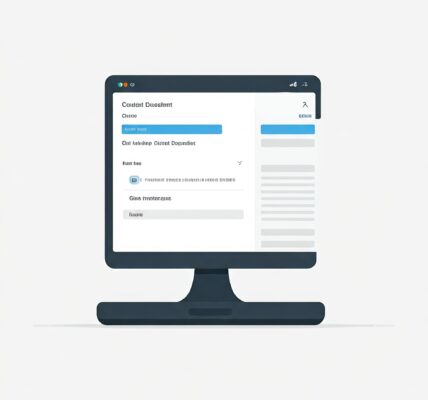AI technology is transforming the landscape of sales calling campaigns, allowing businesses to enhance both effectiveness and efficiency. How to Use AI to Create Effective Sales Calling Campaigns By leveraging AI tools, sales teams can create targeted calling strategies that improve engagement and boost conversion rates. This shift not only streamlines the process but also provides valuable insights into customer behaviour, enabling more personalised interactions.

With AI, teams can analyse data to identify high-potential leads and optimise their calling schedules. This data-driven approach ensures that sellers are connecting with the right prospects at the right time, thereby reducing wasted effort and increasing the likelihood of success.
The integration of AI into sales calling strategies is not just a trend; it’s a fundamental change that empowers sales professionals to work smarter and achieve better results. Embracing these innovations can lead to a significant competitive advantage in today’s fast-paced market.
Understanding AI in Sales

The integration of artificial intelligence into sales processes marks a significant shift in how businesses approach customer engagement. AI tools enhance traditional methods by streamlining operations, personalising interactions, and analysing data to improve outcomes.
The Evolution from Traditional Cold Calling
Traditional cold calling relies heavily on human intuition and experience. Sales agents typically use scripts and their judgement to engage potential clients. This method can often lead to call reluctance due to high rejection rates.
With the advent of technology, this practice has evolved. AI now assists in identifying qualified leads through data analysis. Tools incorporating natural language processing (NLP) enable sales teams to tailor conversations based on insights gained from previous interactions. As a result, the efficiency and effectiveness of calls increase, leading to better conversion rates.
Defining AI Cold Calling
AI cold calling utilises advanced technologies to optimise the calling process. It incorporates machine learning algorithms and sentiment analysis to understand customer emotions and preferences during interactions. These systems can assess a prospect’s likelihood of engagement based on historical data.
Voice personalisation is another crucial aspect of AI cold calling. AI systems can adjust tone and style according to individual prospect profiles, ensuring a more engaging conversation. By automating repetitive tasks, AI allows sales representatives to focus on strategy and relationship-building, ultimately enhancing the overall sales experience.
Setting Up Your AI Sales Campaign

Setting up an AI sales campaign involves strategically developing a prospect list, tailoring AI tools to reflect the brand voice, and ensuring seamless integration with existing CRM systems. These elements work collectively to enhance customer engagement and improve sales strategies.
Developing a Target Prospect List
Creating a target prospect list is essential for optimising AI sales campaigns. Start by defining the ideal customer profile based on demographic and psychographic data. Key factors include job title, industry, company size, and purchasing behaviour.
Utilise data enrichment tools to enhance existing contact information. This process improves lead scoring, helping to identify high-potential prospects. Employing AI can further streamline data collection by automatically sourcing new leads from various platforms.
Organise the prospect list into tiers based on their likelihood to convert. Segmenting helps in tailoring the messaging strategy and makes it easier for sales teams to focus their efforts effectively.
Customising AI to Match Your Brand Voice
Aligning AI tools with the brand voice ensures consistency in communication. Establish clear guidelines outlining tone, language, and messaging style. This approach helps AI tools, such as AI dialers, deliver messages that resonate with target audiences.
Incorporate feedback mechanisms to refine AI outputs continually. Monitor conversations and customer interactions to ensure adherence to brand guidelines. Training the AI using historical call data can also enable it to replicate successful engagement tactics used by human agents.
Utilising contextual data during interactions allows AI to personalise outreach further. Tailoring the conversation based on previous interactions enhances customer experience and fosters relationship building.
Integrating with Existing CRM Systems
Integration with existing CRM systems is crucial for a successful AI sales campaign. Ensure that the selected AI tools seamlessly connect with the CRM platform used by the sales team. This integration allows for real-time data sharing, maintaining updated prospect information without manual input.
Implement automated workflows to streamline processes. For instance, after a call, the AI can log details automatically in the CRM, ensuring that updates are captured promptly.
Utilising analytics features of the CRM enables tracking of engagement metrics. Understanding which strategies work best allows for data-driven adjustments to the campaign, enhancing overall effectiveness.
Executing Effective Sales Calls

Effective sales calls combine automation, personalised interactions, and lead qualification to enhance productivity and efficiency. Implementing AI tools can streamline processes and ensure each call is tailored to the individual prospect.
Automating Initial Outreach
Automation simplifies the initial outreach process, allowing sales teams to focus on live conversations. AI-driven software can manage vast lists of prospects using pre-defined criteria.
Outbound calls can be scheduled automatically based on optimal calling times, maximising the chances of successful connections. AI tools can also generate scripts tailored to specific customer segments, ensuring relevant topics are addressed.
This initial contact phase can incorporate speech recognition technology. This allows for effective data collection during calls, such as recording key points without manual input, thus optimising time and resources.
Using AI for Personalised Conversations
Personalisation is key to engaging prospects during sales calls. AI can analyse customer data to provide insights into preferences and past interactions.
With this information, sales representatives can tailor their approach for each call. By leveraging AI-generated recommendations, they can ask informed questions, leading to deeper conversations and stronger relationships.
Incorporating dynamic AI algorithms means the conversation can adapt in real-time based on the prospect’s responses. This level of personalisation leads to increased engagement and higher conversion rates.
Lead Qualification and Scoring
Lead qualification and scoring are crucial in determining which prospects warrant a sales call. AI tools can evaluate leads based on criteria such as behaviour, needs, and engagement levels.
Automated scoring systems help identify high-potential leads, allowing sales teams to prioritise their efforts. By analysing historical data, AI can predict which leads are more likely to convert, streamlining the calling process.
This data-driven approach enhances efficiency, ensuring sales professionals focus their time on leads that offer the best opportunities. It’s a powerful way to maximise the return on investment in sales efforts.
Optimising Campaign Performance

Enhancing campaign performance involves utilising data-driven insights to refine strategies. By analysing call data, improving customer engagement, and applying predictive analytics, businesses can significantly boost their conversion rates.
Analysing Call Data for Improved Strategies
Call data analysis is essential for developing effective sales strategies. Data-driven decisions derived from this analysis can highlight patterns in caller behaviour and preferences. This helps in adapting outreach tactics to be more relevant and timely.
Key points to consider include:
- Conversion Rates: Track conversion rates for different calls to identify successful tactics.
- Sentiment Analysis: Utilise sentiment analysis on call transcripts to gauge customer emotions and adjust messaging accordingly.
- Feedback Loop: Create a feedback loop by integrating insights from analysed data into the sales process.
This iterative approach ensures continuous improvement in campaign strategies.
Enhancing Customer Engagement
Creating strong customer engagement is critical in sales campaigns. By leveraging insights gathered from previous interactions, businesses can tailor their approach to resonate with prospects.
Effective techniques include:
- Personalisation: Use customer-specific data to personalise conversations, making them feel valued.
- Engagement Timing: Determine optimal times for calls based on historical data to increase chances of a positive response.
- Multi-channel Strategies: Implement a blend of email, social media, and voice calls to maintain consistent communication.
These strategies promote a more engaging customer experience, which can lead to higher closing rates.
Predictive Analytics for Sales Forecasting
Predictive analytics play a vital role in anticipating future sales trends. By using statistical models and machine learning, businesses can forecast outcomes based on historical data.
Important aspects to focus on:
- Trend Analysis: Identify and analyse past trends to project future sales performance.
- Lead Scoring: Develop scoring systems for leads based on predicted conversion likelihood.
- Resource Allocation: Allocate resources effectively by predicting high-value prospects and optimal outreach strategies.
Integrating predictive analytics into campaign planning allows for informed decision-making, increasing efficiency and effectiveness in reaching sales targets.
Scaling Your Sales Efforts Globally

Expanding sales efforts on a global scale requires strategic application of AI technologies. By utilising AI, businesses can enhance their reach and tailor their approach to different cultures and markets effectively.
Leveraging AI for Global Reach
AI plays a crucial role in scaling sales operations by facilitating broader outreach. It allows organisations to automate aspects of their sales calling campaigns, enabling them to handle higher volumes without additional resources.
Key benefits include:
- Scalability: AI agents can manage multiple calls simultaneously, increasing operational capacity.
- Cost Savings: Automating routine tasks reduces staffing costs while maintaining efficiency.
- AI Voices: Advanced AI voices can engage customers in multiple languages, ensuring communication is clear and effective.
Using conversational AI, businesses can also analyse customer interactions to refine messaging for specific demographics and regions.
Cultural Considerations in AI Conversations
When engaging global audiences, understanding cultural nuances is vital. Different markets respond to varied communication styles, which impacts the effectiveness of sales campaigns.
Important considerations include:
- Language Sensitivity: Employ AI that can use culturally appropriate language and idioms.
- Adaptability: AI systems should adapt based on regional customer preferences and sensitivities.
- Localisation: Customising sales messages according to local traditions and expectations builds rapport.
AI capabilities can be enhanced to include cultural insights, ensuring that sales campaigns resonate well across different countries.
AI can be a game-changer for sales calling campaigns by optimizing lead targeting, personalizing outreach, and automating follow-ups. Here’s a step-by-step guide to using AI for an effective sales calling campaign:
Here are some options to enable you to take your sales to the next level
1. Use AI to Identify and Prioritize Leads
AI-powered CRM and sales tools can analyze customer data, past interactions, and engagement levels to score and prioritize leads.
Tools:
- HubSpot Sales Hub – Uses AI to score leads based on engagement.
- Apollo.io – AI-powered prospecting and lead enrichment.
- ZoomInfo – AI-driven lead insights and segmentation.
How to Implement:
- Feed AI tools with customer data from your CRM.
- Let AI rank leads based on likelihood to convert.
- Focus your calling campaign on high-priority leads.
2. Automate and Personalize Call Scripts with AI
AI can generate dynamic call scripts based on customer data, making conversations more relevant.
Tools:
- ChatGPT / Claude AI – Generates tailored scripts based on lead profiles.
- Gong.io – Analyzes call data to optimize scripts and sales talk tracks.
- Outreach.io – AI-powered call sequencing and script recommendations.
How to Implement:
- Input common objections and product details into AI tools.
- Use AI to generate different call scripts based on industry, pain points, or customer history.
- Continuously refine scripts based on AI insights.
3. AI-Powered Dialers and Call Automation
AI-driven dialers can improve efficiency by eliminating manual dialing, tracking responses, and scheduling callbacks.
Tools:
- Aircall – AI-assisted calling with CRM integration.
- Kixie – AI-powered auto-dialer and call tracking.
- SalesLoft – AI-driven call analytics and engagement tracking.
How to Implement:
- Upload a lead list and let AI auto-dial based on priority.
- Use AI analytics to determine the best times to call.
- Automate voicemail drops and follow-up messages.
4. AI-Based Call Analysis and Coaching
AI can analyze call recordings to detect sentiment, identify objections, and provide coaching tips.
Tools:
- Gong.io – AI-driven conversation intelligence for call analysis.
- Chorus.ai – AI-powered sales call coaching and analytics.
- Fireflies.ai – AI call transcription and sentiment analysis.
How to Implement:
- Record and transcribe calls using AI.
- Use sentiment analysis to understand customer reactions.
- Train sales teams based on AI-generated insights.
5. AI for Automated Follow-Ups and Scheduling
AI can handle follow-ups, schedule meetings, and send personalized emails post-call.
Tools:
- Drift – AI chatbot for scheduling and follow-up messaging.
- Conversica – AI sales assistant for automated follow-ups.
- Calendly + AI – AI-powered scheduling for sales meetings.
How to Implement:
- Integrate AI with your CRM to automate personalized follow-ups.
- Use AI-generated emails to nurture leads who didn’t convert on the first call.
- Let AI schedule callbacks based on customer availability.
Final Thoughts
AI can transform your sales calling campaigns by making them more efficient, targeted, and data-driven. By leveraging AI for lead scoring, script generation, automation, analysis, and follow-ups, you can increase conversions while reducing manual effort.
More AI information can be found here





